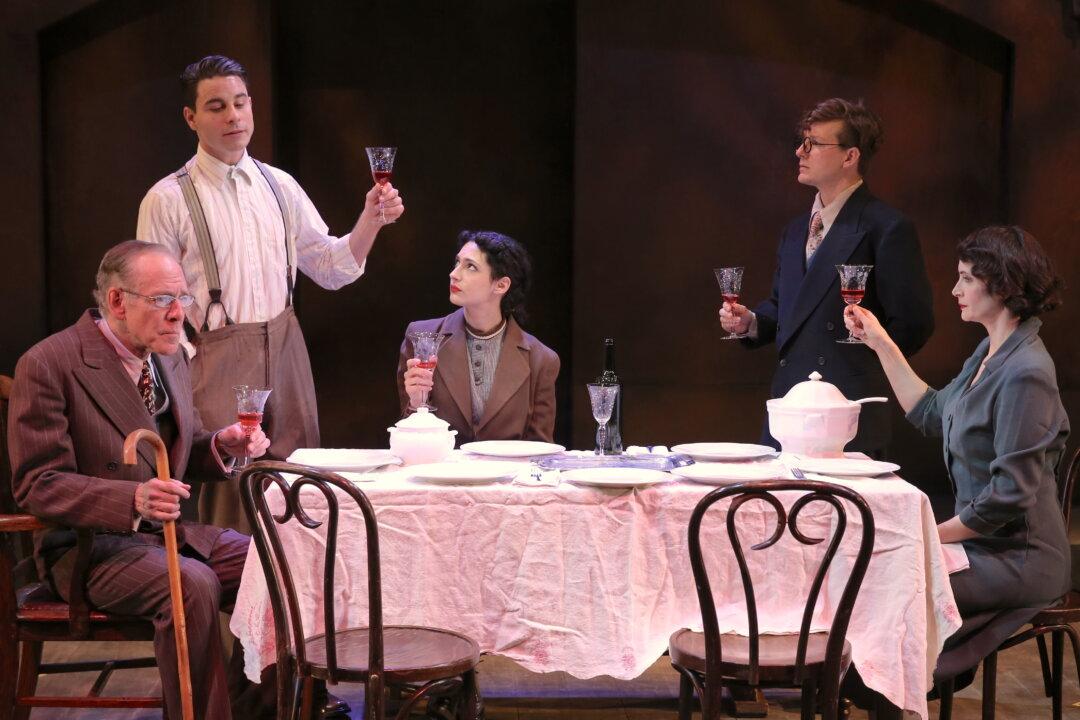NEW YORK—Every choice a person makes is a test of his or her mettle. Yet when a choice becomes a matter of life and death for many, the question becomes how far should one go for the sake of the greater good. Ira Fuchs’s powerful drama “Vilna,” now having its world premiere at the Theatre at St. Clement’s, spans from 1928 through World War II and is a work that should be mandatory viewing for everyone over 18. According to the program notes, 49 percent of millennials cannot name a single camp or ghetto from the Holocaust.
The Jewish people of Vilna—at the time of the story a Polish city—have long had to cope with racial hatred. The area has changed hands many times in an endless geopolitical tug of war. As one character notes, “The Russians, the Poles, and the Lithuanians hated each other. And they all hated the Jews.”





